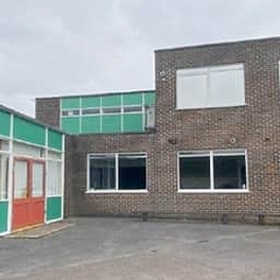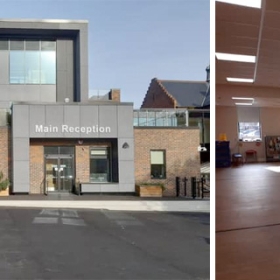Missing Targets for School Inspections
Checks of ‘deteriorating’ school buildings yet to start
Government signed off on £2m scheme for assessments at schools with ‘system-built’ classroom blocks last year
Ministers are set to miss their own targets to inspect hundreds of post-war school buildings that ministers rank alongside RAAC as a top safety concern.
The government signed off on a £2 million scheme last year for invasive structural assessments at 200 schools with “system-built” classroom blocks to “better understand” the safety risks.
There are 3,600 of these blocks, quickly built after the second world war, that the government says are “more susceptible to deterioration” and “could lead to a higher risk of hidden structural defects”.
Six have already had to close due to “structural instability”.
The Department for Education aimed to carry out 100 assessments this year, but appears not to have yet appointed specialists to do the work.
Munira Wilson, the education spokesperson for the Liberal Democrats, said ministers should start the visits “urgently and as safely as possible”.
“If they had set themselves these targets and they are way off missing them, what does that say to parents and school staff up and down the country?”
‘Taking longer than expected’
System-build blocks are made from concrete, steel and timber, rather than traditional brick and stone. They were put up between 1940 and 1980 with an initial design life of just 30 to 40 years.
One of DfE’s own “key risks”, as listed in its latest annual report, are buildings constructed post-1945 that “could be subject to defects that increase the risk of collapse”.
Alongside asbestos and reinforced autoclaved aerated concrete, it is the third structural issue that the DfE says “may generate safety risks”.
A report by the National Audit Office (NAO) in June found these builds could usually be used beyond their initial design life if they were adequately maintained – although that could be expensive.
The DfE identified more than 13,000 system-built blocks, but had the greatest concerns about 3,600 that used concrete or timber frames.
Two types that could have structural issues have already been identified – Laingspan and Intergrid. However, affected schools have secured new blocks under the latest school rebuilding programme.
‘It has taken a little longer than expected’
In September last year, the department pledged to focus on concrete and timber-framed system-built blocks in 200 schools.
It aimed to look at 100 this year and a further 100 in 2024. However, the NAO said the DfE was yet to procure specialists for the work.
Auditors even urged the department to consider whether its research plan remained “the best approach to provide an accurate and comprehensive understanding of the nature and the scale of the risks associated with the blocks, and therefore how best to mitigate these risks”.
Pressed by MPs in July, Jane Cunliffe, the DfE’s chief operating officer, said the scheme had
“taken a little longer than expected, partly because of the need to manage the asbestos while even doing those invasive surveys”.
She also said a lot of the work might have to be done during school holidays.
Asked whether that meant summer next year, Cunliffe said:
“There are other holidays, so it might be that we could do it in those.”
Last month, Baroness Barran, the academies minister, said the research would be started “later this year”.
When asked for an update last week, the DfE would only say it was “following standard commercial procedures and further updates will be published in due course”.
With just over two months left of the year, it suggests this year’s target will be missed.
‘Redouble efforts’
Hampshire County Council has said 40 per cent of its school estate had SCOLA – a type of system-build – that was “well beyond “ its estimated initial design life.
It installed safety catches to prevent parts of windows falling down as a short-term fix.
James Bowen, the assistant general secretary of the school leaders’ union NAHT, said the RAAC fallout must not let other school building issues “build up to crisis point”.
Source: Schools Week





Leave a Reply
Want to join the discussion?Feel free to contribute!